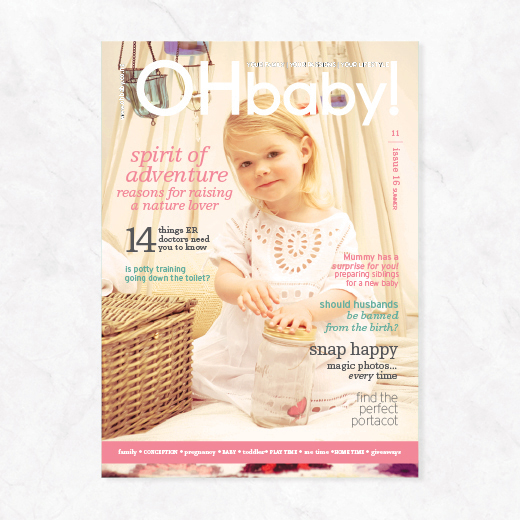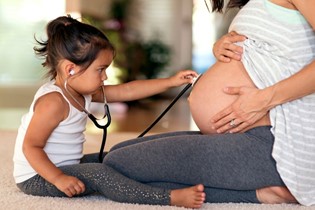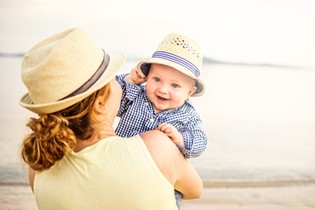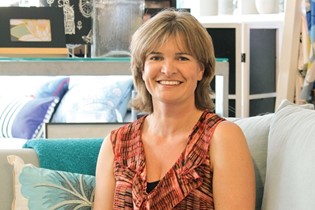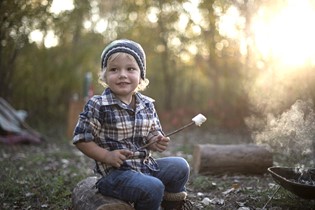Preparing for a new sibling
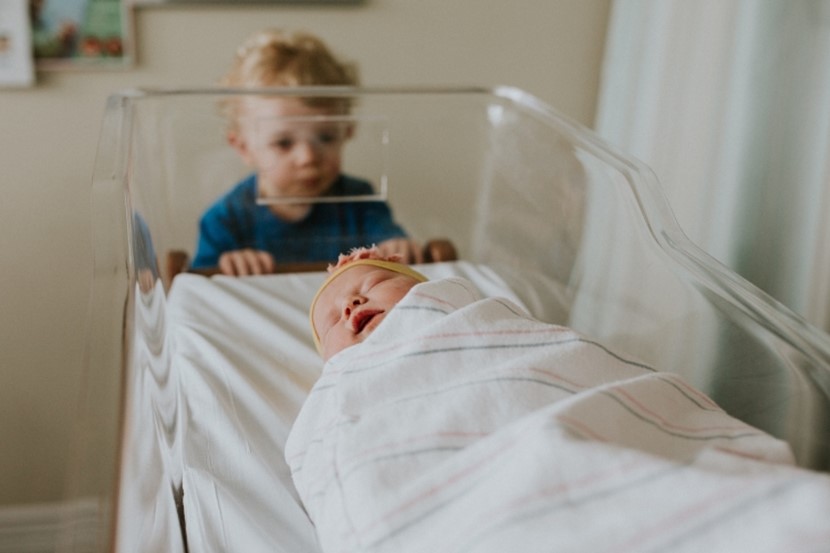
Mummy's got a surprise for you!
How can you prepare your youngster for the arrival of a sibling? Child psychologist Epenesa Olo-Whaanga offers advice.
Welcoming a new baby into the family can be a major transition for everyone - not least for the older sibling. But as with other tricky transitions (weaning, using a potty, moving to a big bed), trust your parenting instinct and watch your littlie's behaviours to give you some clues.
With a new arrival in the house, life will never be the same again for your firstborn. She will share your usually undivided attention with the new baby. She will also share lots of other things at a developmental stage when sharing may not be her strength! Fortunately, there are many months to prepare before the new one is born and there are things that you can do to try to help her understand and adjust to the expanding family.
Explaining the bump
Showing and acknowledging the "bump", telling her there is a baby growing inside - her new sibling - may not be readily understandable but she will reference this bump as her brother or sister in time. She will probably hear others and yourself talking about the new baby and as the baby grows, so will the bump. Showing her how the baby moves in your tummy, especially in the later months, and getting your little one talking to her new sibling are ways of making this more real. The baby in utero is capable of responding to noise and may respond readily to the familiar sounds of your child.
There are books that can help an older toddler understand, especially if she loves picture books. You could also tell stories about your own siblings to help her understand she will also have a sibling. Again, it depends on her age but it can help to give her a reference to understand the relationships between people. She may find it weird to discover that, as you are her mother, you also have a mother, and soon she will have a brother or sister. Your local library and bookstores should have helpful books.
Showing your child the new bassinet or cot for the baby can be an important part of preparing her. She may already be in her own room or in a "big bed". Help her to understand the new layout of the house and where the new baby will sleep. This can help her to understand that there is a space in the home for her new sibling and be able to see it as "brother /sister's room or bed". This is a very practical and concrete way of showing your littlie there will be a new member of the family soon.
Planning for the birth
As the date approaches, planning for the birth is important. Arranging what will happen to your littlie will be just as important. Ensure that the person who will take care of her during the birth is well-known to her. Pack her special things to give her a sense of security when you are not around.
Have some trial nights away or extend periods of time away in preparation. This may include having someone stay at your home or your child staying at her place. Whatever the situation, try to have some trial runs. Labour may come on more slowly and give you more time to organise your little one but it may also be faster, so having the contingency plan in place will alleviate some of the stress.
It would be important for your littlie to spend some time with other attachment figures in her life. Fathers can often take on more responsibility and spend more time in preparation for having a new baby. Grandparents or other family members, close friends or nannies can be other important adults. These other adults can also be the supports for you and your child and they can be very helpful as you spend time bonding with the new baby or just having a rest.
These other adults may be able to help out with your child's routines, whether it's daycare, swimming or Mainly Music when you are unavailable.
Your littlie may want to see you soon after being separated. Coming to see Mummy in a strange environment can be unsettling, but knowing that you are okay and seeing her new sibling can help her to make sense of the build-up. You may have already taken her on a tour of the hospital to help her deal with a new environment and understand that this is where you are staying.
One of the things that can occur is a regression in your child's behaviour following the birth. While the baby may be an exciting novelty, this can wear off fast as your child realises the permanence of this change. Behaviour can change and she may verbalise distress or jealousy.
She may also start to wet herself again after being dry for some time. She may ask for a bottle or want to be cradled like a baby or even say she wants the baby to go back to where he came from - usually the hospital. Some of the demands for nurturing may be usual as she is watching you caring for the new baby and it may be a demand for caring and attention that she sees you give the new baby - she's communicating she wants some of you too. Don't be alarmed by these changes. It is a natural response to change in her environment. With sensitivity to her needs, these changes should be only temporary.
Avoid other changes
Another way to ease the transition is by avoiding other changes that coincide with this important time. Sometimes parents choose to send their littlie off to childcare or kindy at this time, or move her into a different room. This is not the best time to do this and children can feel overwhelmed by too many changes at once, just as adults do. Try to ensure these changes are made well before the due date so that your littlie is well into her new routine.
Giving your littlie "big brother" or "big sister" tasks can help him or her feel included and important. Developmentally appropriate tasks might be as simple as fetching a nappy or gently patting baby. Teach your child gentle ways of interacting with her new sibling and give her lots of praise for it. You may want to have some rules around not picking up the new baby, for instance, as she may copy some of the things she sees you do. Anticipate what may happen if you are busy doing other things.
Spending time with your little one will still be necessary. Try to spend some focused time with her each day. Five minutes of just letting her lead the play has been shown in research to improve relationships between parent and child. Five minutes is achievable. Don't set your expectations higher and not achieve them. Just set aside at least five minutes of special time with your littlie each day. It may be when the new baby is sleeping or being cared for by someone else. Fathers often increase their time with their older child at this point. Again, I recommend dads spend at least five minutes of special child-led play each day. Dads often do different stuff with kids and this may provide time for discovering new things to do together.
Adjusting to a new baby while caring for a toddler is also a major transition for parents. Continue having conversations with each other about the impact of this on you as parents and on your relationship. Talk to and use other supportive adults in your life. Managing two littlies while preparing meals, getting them to sleep, bathing or playing with them can feel unmanageable especially in the early days.
Taking them both out can feel like having to pack the kitchen sink - two car seats, two sets of nappies, a change of clothes, food. Don't be too hard on yourself. You will develop a routine that fits your family over time.
Books for siblings
When words fail you turn to books to help your older child understand the changes about to come with the arrival of a new baby in the house. We recommend the following titles to get you started but there's a wealth of other titles available at all good bookstores.
- There's a House Inside My Mummy, Giles Andreae, Orchard Books
- Go Away Baby!, Claire Llewellyn, Start Reading Baby & Me, Wayland Publishers Ltd
- A Baby Sister for Frances, Lillian Hoban, Russell Hoban, HarperTrophy
- Za Za's Baby Brother, Lucy Cousins, Walker Books
- There's Going To Be a Baby, John Burningham, Walker Books
Epenesa Olo-Whaanga [MA (Hons), PGDipClinPsy, MNZPsS) is a clinical psychologist in Auckland. She has worked at a child, adolescent and family mental health service for many years specialising in assessment and intervention with families. Epenesa also works in private practice, dealing with a range of issues including anxiety, depression, adjustment issues, behavioural issues, parenting and family relationships.
image: @hannitary via Twenty20

AS FEATURED IN ISSUE 16 OF OHbaby! MAGAZINE. CHECK OUT OTHER ARTICLES IN THIS ISSUE BELOW
